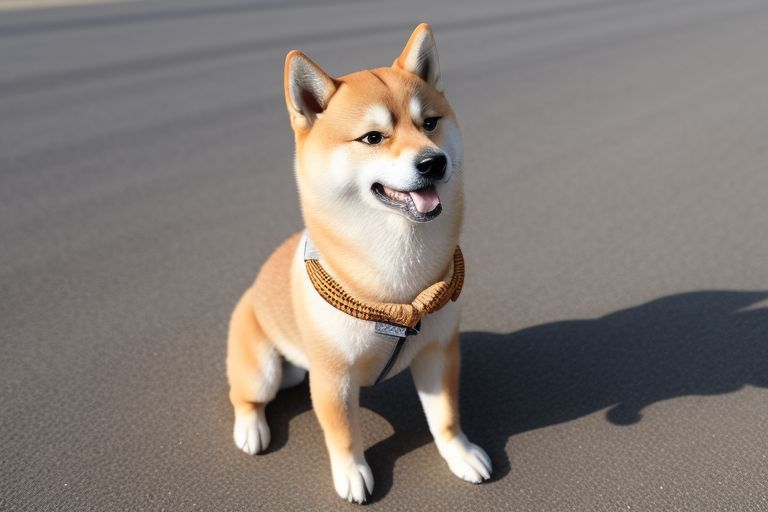Shiba dog
The Shiba dog is a distinct and ancient Japanese dog breed known for its spirited personality, small stature, and fox-like appearance. In this comprehensive overview, we’ll delve into various aspects of Shiba dogs, including their history, characteristics, temperament, care requirements, and more.
History and Origin:
The Shiba dog roots trace back to Japan, where it is considered a national treasure. The breed is one of the oldest and smallest native Japanese dog breeds, with a history dating back thousands of years. The exact origin of the Shiba is uncertain, but it is believed to have descended from the ancient Japanese dogs that accompanied the Jomon people around 300 B.C. These early Shiba dogs were versatile hunters, adept at tracking and flushing out small game in the mountainous regions of Japan.
The Shiba Inu was nearly extinct after World War II due to bombings and a distemper outbreak. However, a concerted effort by Japanese breeders helped revive the breed. Today, the Shiba Inu is a popular companion and is recognized internationally for its unique characteristics.
Physical Characteristics:
Shiba Inus are small to medium-sized dogs with a well-balanced and compact build. They typically stand between 13.5 to 16.5 inches at the shoulder and weigh around 17 to 23 pounds. Shiba dogs have a distinctive curled tail that sits high on their back and is often referred to as a “Shiba scream” when they vocalize.
Their double coat is dense, straight, and coarse, with a soft undercoat that provides insulation. Coat colors include red, black and tan, and sesame (red with black-tipped hairs). The Shiba’s facial expression is often described as fox-like, with small, triangular ears, and dark, almond-shaped eyes that convey intelligence and alertness.
Temperament:
Shiba Inus are known for their bold, confident, and spirited nature. They are highly intelligent, independent, and can be reserved around strangers. Despite their small size, Shiba dogs have a strong-willed personality and may exhibit a stubborn streak. Early socialization and consistent training are crucial to ensuring a well-behaved and well-adjusted Shiba Inu.
While Shiba Inus are generally good with children and families, they may not always get along with other dogs, especially those of the same sex. Their strong prey drive can make them inclined to chase smaller animals, so caution is advised when introducing them to other pets.
Read more: Excessive Dog Chewing
Training and Exercise:
Training a Shiba Inu requires patience and consistency. They are known for their independent thinking, and positive reinforcement methods work best. Early socialization is essential to curb potential aggression or aloofness.
Shiba Inus are an active and agile breed, requiring regular exercise to maintain their physical and mental well-being. Daily walks, playtime, and engaging activities are essential to prevent boredom and destructive behavior. Due to their hunting instincts, Shiba Inus should be kept on a leash or in a secure, fenced area, as they may be prone to chasing after smaller animals.
Health Considerations:
Overall, Shiba Inus are a hardy and healthy breed. However, like all dogs, they may be prone to certain health conditions. These can include hip dysplasia, patellar luxation, and progressive retinal atrophy. Regular veterinary check-ups, a balanced diet, and maintaining a healthy weight are crucial for their well-being.
Read more: Small dogs
Grooming:
Shiba Inus are relatively clean dogs with a self-grooming instinct. They shed heavily twice a year during seasonal changes, and during this time, more frequent brushing is necessary to manage loose fur. Regular tooth brushing, nail trimming, and ear cleaning should also be part of their grooming routine.
Living with a Shiba dog:
Shiba dogs can adapt well to various living situations, including apartments, as long as they receive sufficient exercise and mental stimulation. However, potential owners should be aware of their strong prey drive and may need to take precautions when introducing them to smaller pets.
Owners of Shiba dog should be prepared for their dog’s occasional stubbornness and strong-willed nature. Providing mental stimulation through puzzle toys and engaging activities can help prevent boredom-related behavior issues.
Conclusion:
In conclusion, the Shiba Inu is a fascinating and distinctive breed with a rich history and unique characteristics. While they may present challenges in training due to their independent nature, their loyalty, intelligence, and spirited personality make them cherished companions for those willing to invest time and effort in their care. As with any dog breed, responsible ownership, proper training, and regular veterinary care are essential to ensuring a happy and healthy life for Shiba Inus.

